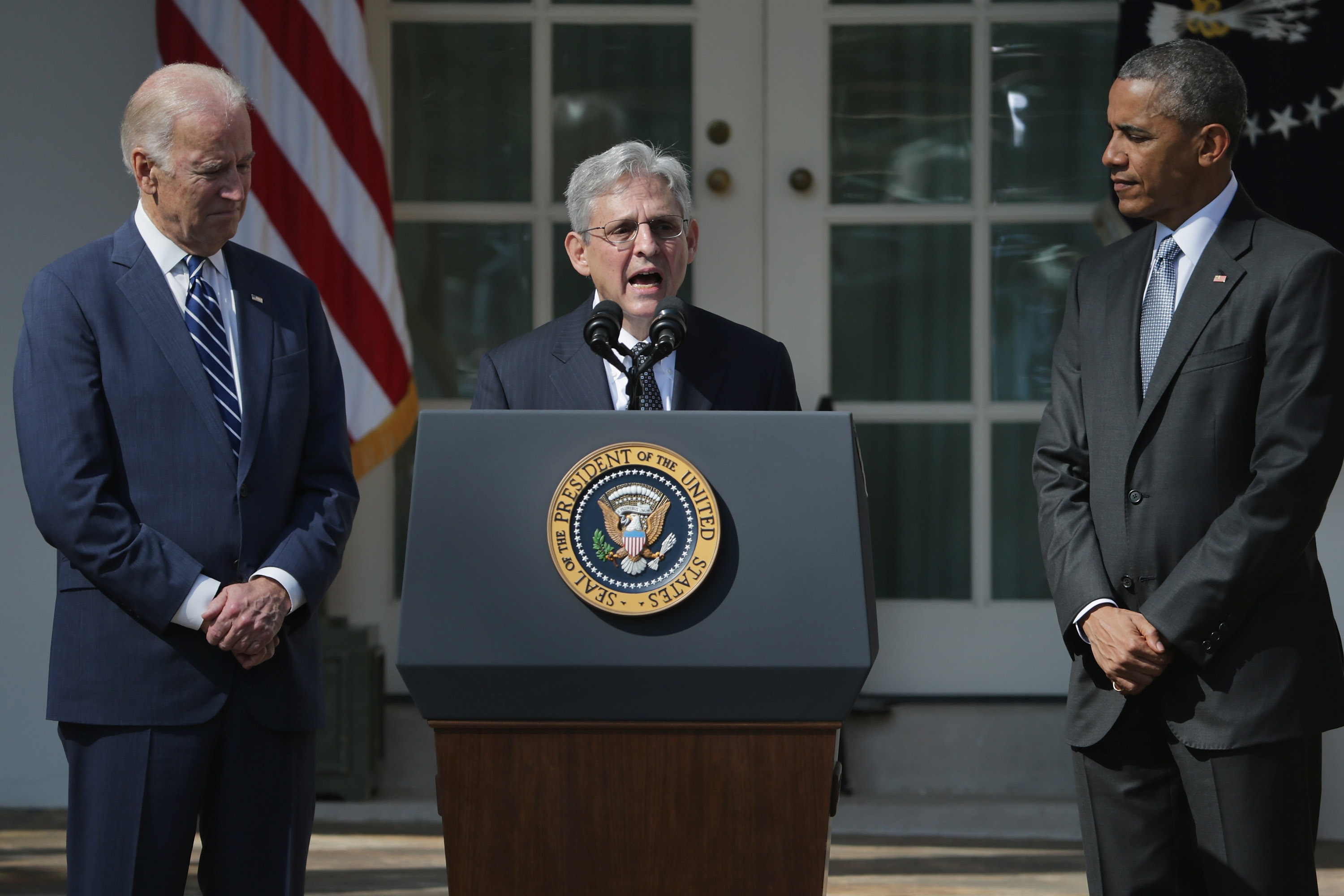Political Report
Candidates Can Pledge to Appoint Public Defenders to the Bench To Show They Are Serious about Mass Incarceration
None of Trump’s confirmed or pending judicial nominees has worked as a full-time public defenders.

This is the fifth installment in the series The Contenders 2020: Criminal Justice in the Race for President. It was published as part of the March 22 Daily Appeal.
In the days after President Trump was elected, the despair among those who fight for social and environmental justice range from alarmist to apocalyptic, but one group remained somewhat optimistic: criminal justice reformers. The idea was that, because federal prisons housed only about 13 percent of the overall prison population, and because most policing and prosecution happens at the local level, the president couldn’t really tank reform efforts, even if he tried. There is plenty of truth to that argument, and, since the election, we have seen some wonderful reforms, but, I am very sorry to report, the optimism overlooked a crucial factor: federal judges.
As Kyle Barry, senior legal counsel at The Justice Collaborative, wrote this week in Slate, pro-law enforcement judges have, in many ways, shaped the way local criminal legal systems function: “It is nearly impossible to sue police for civil rights violations because of the judge-made doctrine of ‘qualified immunity.’ It is even harder to sue prosecutors. Federal judges also set policing standards that govern searches, interrogations, and the use of force.” These decisions “often reflect a bias for prosecutors and aggressive policing while the lawyers who best know what’s at stake, who know how these critical decisions impact real people, are excluded.” Those lawyers are public defenders.
In the New York Times, Yale law professor James Forman wrote last week: “Judges have held that the Fourth Amendment doesn’t prohibit police from racially profiling drivers during traffic stops, that the Sixth Amendment permits trials with underfunded defense lawyers who present little evidence or argument, and that the Eighth Amendment is no bar to outrageous sentences like life without parole for drug possession.” He was discussing NYU Law Professor Rachel Barkow’s new book, “Prisoners of Politics: Breaking the Cycle of Mass Incarceration.” “How did our legal landscape become this anti-defendant? In part because so many federal judges are former prosecutors. Barkow reports that 43 percent of federal judges have been prosecutors, while 10 percent have been public defenders.”
Barry reviewed the Senate Judiciary Committee questionnaires for all of Trump’s 143 confirmed or pending judicial nominees who have submitted one (a handful of recent nominees have not). He learned that not a single one has worked full-time as a public defender in the state or federal systems. “By contrast, more than one-third of Trump’s nominees have worked as prosecutors.”

This is in line with mainstream thinking on both the left and the right, which views prosecutors as somehow neutral and well suited to the job of being a judge, and sees defense attorneys as radical zealots. More than 40 percent of President Barack Obama’s judicial nominees were prosecutors, outnumbering public defenders three to one. And Obama nominated Merrick Garland, a former prosecutor, to the Supreme Court, choosing him over Jane Kelly, a former public defender. “Once Kelly, a judge on the 8th U.S. Circuit Court of Appeals, was reported to be a finalist, conservative groups used her public defense experience to launch a smear campaign and paint her as a threat to law and order,” wrote Barry.
Barry suggests that “a pledge to appoint at least as many public defenders as prosecutors to the federal bench is a tangible way for presidential candidates to show commitment to dismantling mass incarceration while at the same time charting a path forward for the courts.” Similarly, Forman writes that Democratic candidates should promise to reshape the federal bench “so that it has as many former public defenders as it does former prosecutors.” The Supreme Court, he suggests, “is a good place to start.”
But the public can do more than hope that presidents appoint public defenders to the federal bench. When prosecutors are nominated, voters should interrogate their records, talk to defense attorneys who have seen them at work, and read court transcripts, to find out whether the nominee sought convictions at the expense of justice. If the nominee claims to be even-tempered and neutral, intrepid investigators can seek out whether the nominee refused to make reasonable plea offers or withheld exculpatory evidence, for example.
And when it comes to state-level judges, the ones who administer criminal justice every day, progressives can do even more: They can vote public defenders into office. Four such candidates recently ran, and lost, in San Francisco. But last month, recently elected progressive commissioners in Harris County, Texas, rejected an audacious funding request from the local prosecutor to expand her office by one-third. Instead, they chose to expand the public defender’s office.
Barry told the Daily Appeal that public defenders can do their part, too. They shouldn’t give in to the conventional wisdom, either: They should apply for federal judgeships when there are vacancies, or run for elected judicial positions at the state level. They should “make the case for why the bench needs more public defense representation, and actively push to change the prevailing narrative on judges
